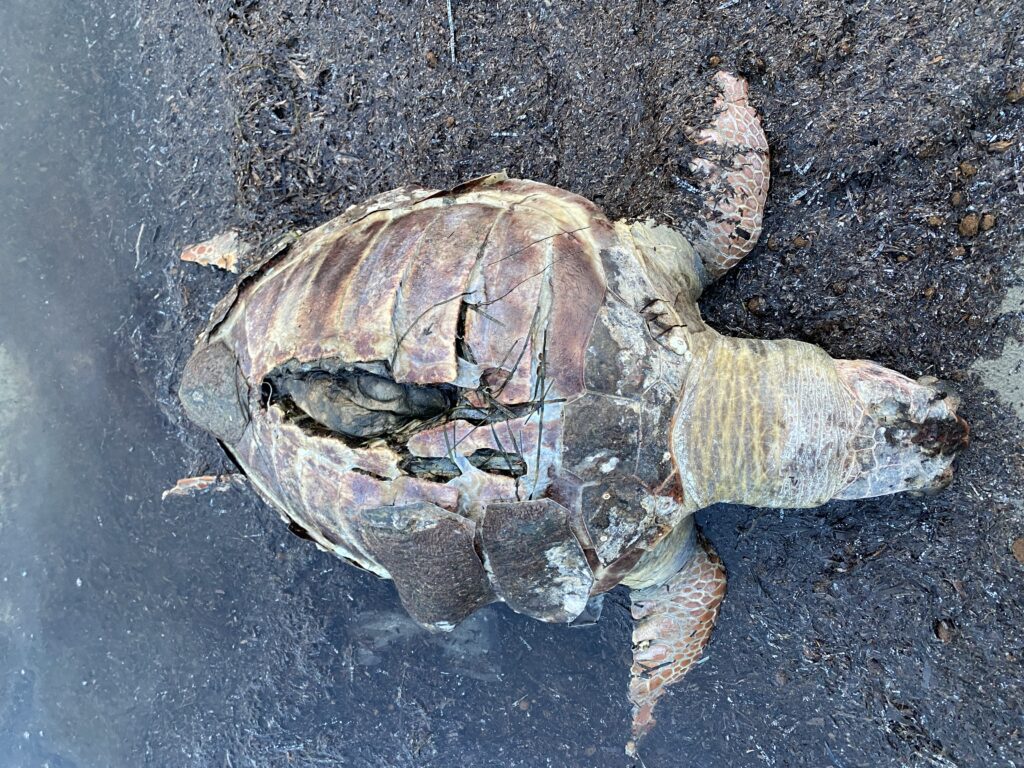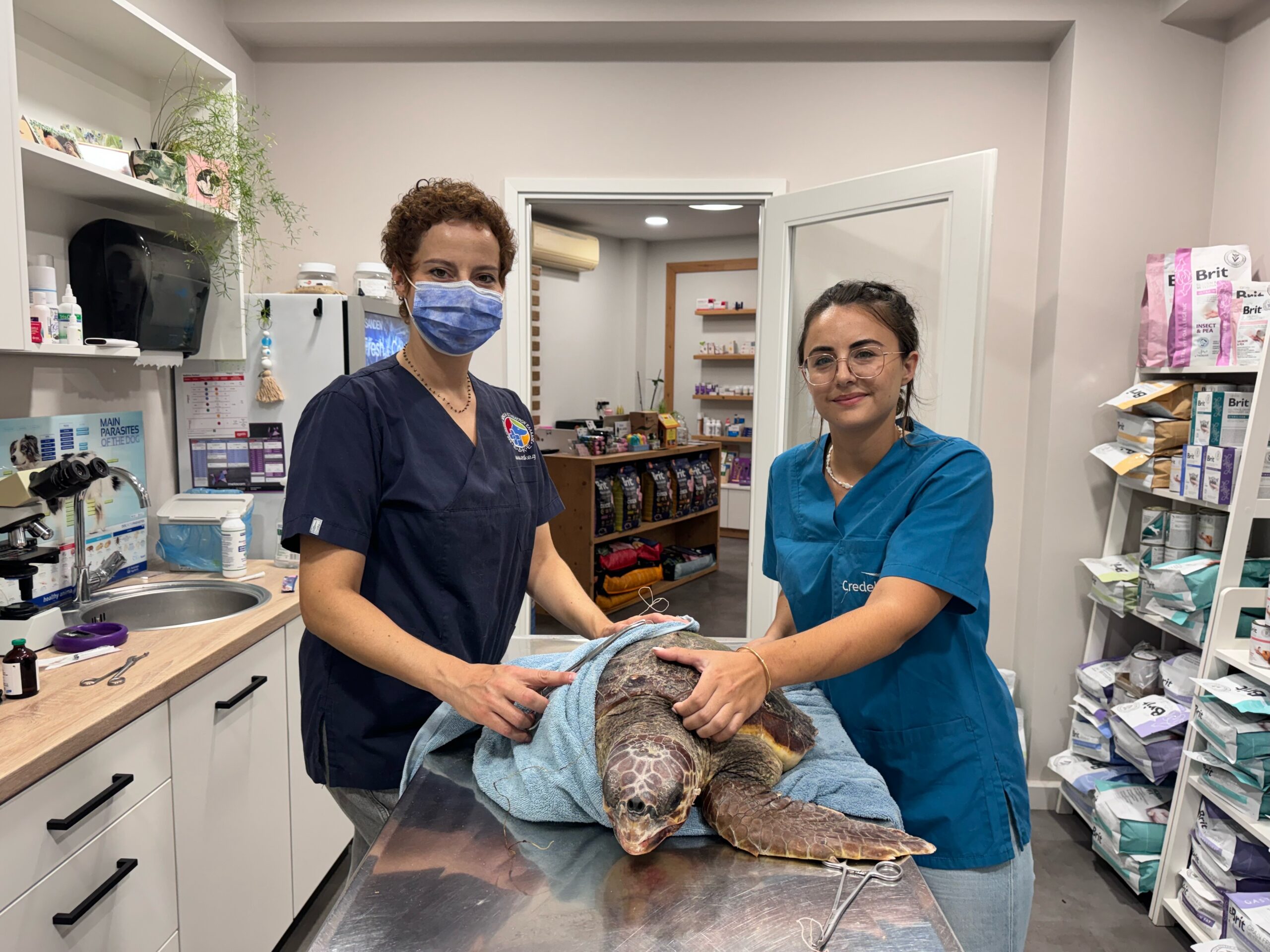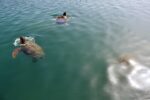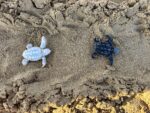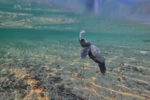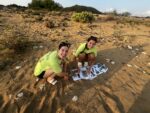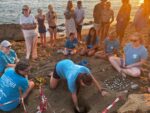Our Latest News- September 23, 2024
Argostoli Field Station
Autumn has officially arrived on the Island. At this time of the season, the waves tend to get higher and take over more of the beach. Because of that, we had to completely relocate / inventory one of our hatcheries to ensure that all eggs and hatchlings were safe. This was a success and we ended up releasing over 300 hatchlings that night. Now we are left with only one hatchery, with a total of 14 nests.
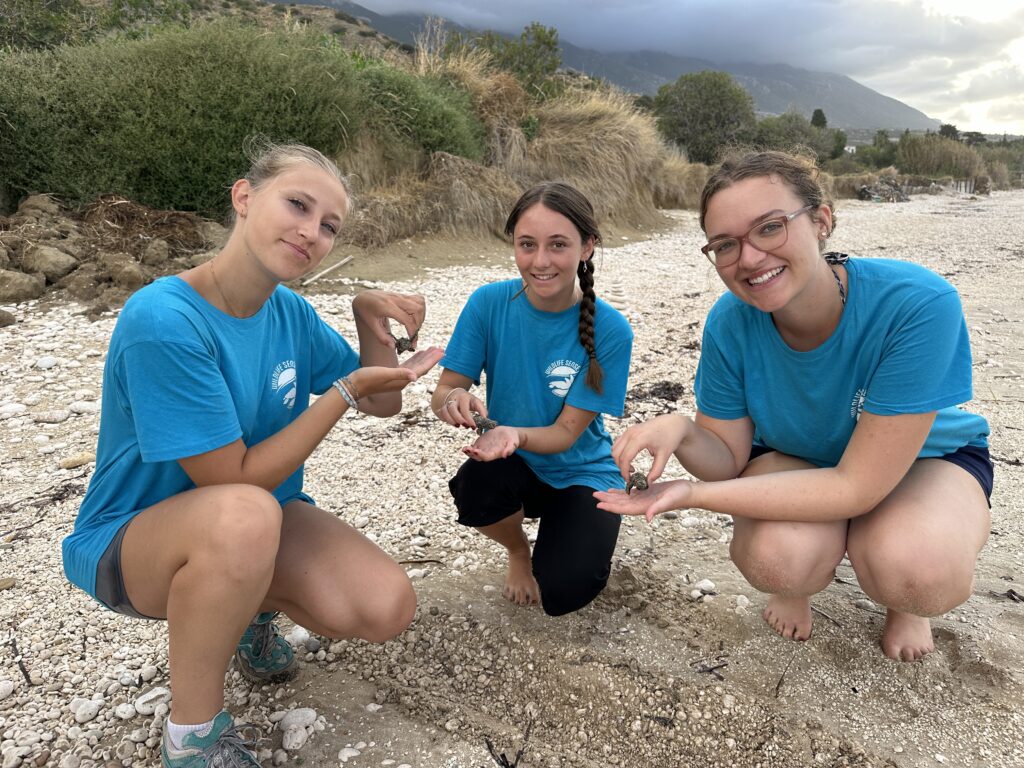
We also had 3 successful turtle rescues in the past week. Each turtle was spotted on our regular drone surveys. The first one, Frosty, one of our turtles who has been around since 2021, was spotted not moving one of his front flippers. After capturing him safely we observed an injury on his plastron, which could related to the lack of full movement with the front flipper. After communicating with the Rescue Centre in Athens it was agreed that Frosty should be released after first aid was provided and we would do our best to keep monitoring him via drone flights and daily harbour visits.
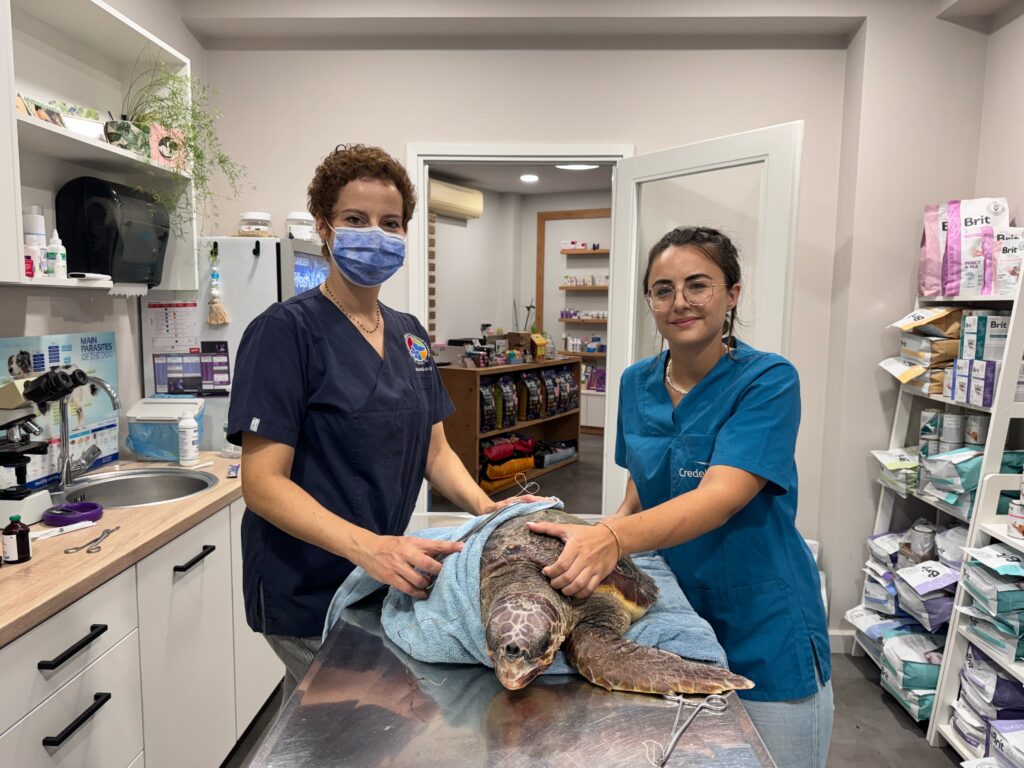
The second one, a female, was also spotted not moving one of her front flippers. She had a visible old propeller injury on her carapace. We also noticed she was covered in leeches. This was an important indicator for us that something might be wrong. Luckily, the blood tests at the vet were clear and a fresh water bath helped to remove the leeches. She was released back into the harbour after her treatment finished.
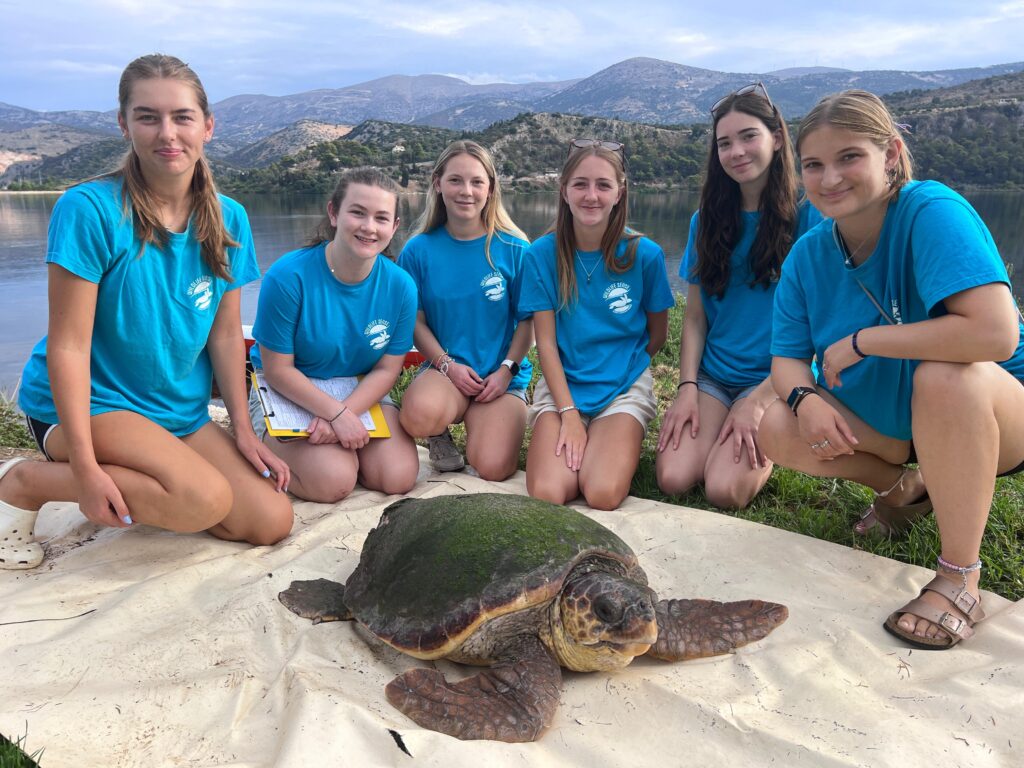
The third turtle was spotted with a fishing line coming out of its mouth and wrapped around a flipper. The team provided the initial first aid, cleaning the wounds and removing the line. The turtle was then brought to the vet for further examinations including an x-ray that indicated she had ingested no hooks. The line was removed and the turtle was released. Spotting fishing line entanglements at an early stage is essential to prevent serious injuries, which is the aim of our research teams and their daily observations.
Svoronata Field Station
The start of a new month brought the start of the stormy season to Svoronata, but regardless, our volunteers braved the rain and continued to survey the great seagrass meadows of the Ionian Sea. This week, volunteers completed our first-ever snorkel surveys on Eglina Beach and managed to finish almost the whole beach, despite the storms, in just two surveys. They were also lucky enough to be able to see some of the local wildlife on these surveys and ticked a Jellyfish, an Octopus and an Eel off our snorkel bingo for the first time this season.
As part of our Coastal Species identification efforts, the volunteers have started surveying a new dune system on Megali Ammos. The new dune system is rife with exciting plants, including Echinophora spinosa, or as it is more commonly known; Sea Holly. We also ventured to Fanari Lighthouse to conduct a bird survey where we heard our first Great Chested Grebe, along with seeing 99 Yellow-Legged Seagulls. At the end of the survey, we were even lucky enough to spot a Monk Seal.
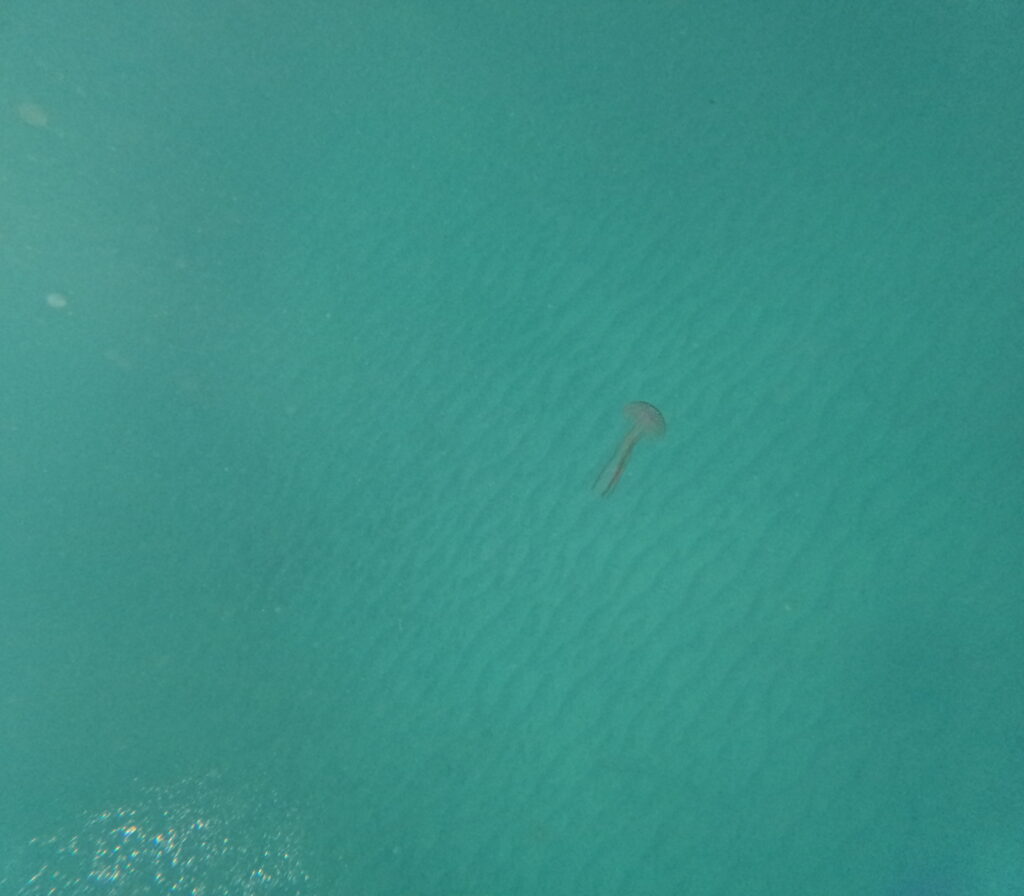
Due to an extremely stormy day, our volunteers were lucky enough to be able to see our Argostoli field station do multiple moisture checks, relocations and inventories on Megali Ammos. They were then also invited along to see the hatchlings be released at a different beach, where they were able to assist the Argostoli field station in keeping an eye on the hatchlings as they entered the water. Collaborations between Field Stations are a real treat for our volunteers as they get to speak to people from different program, and we were delighted to see them sharing stories of their different but related adventures.
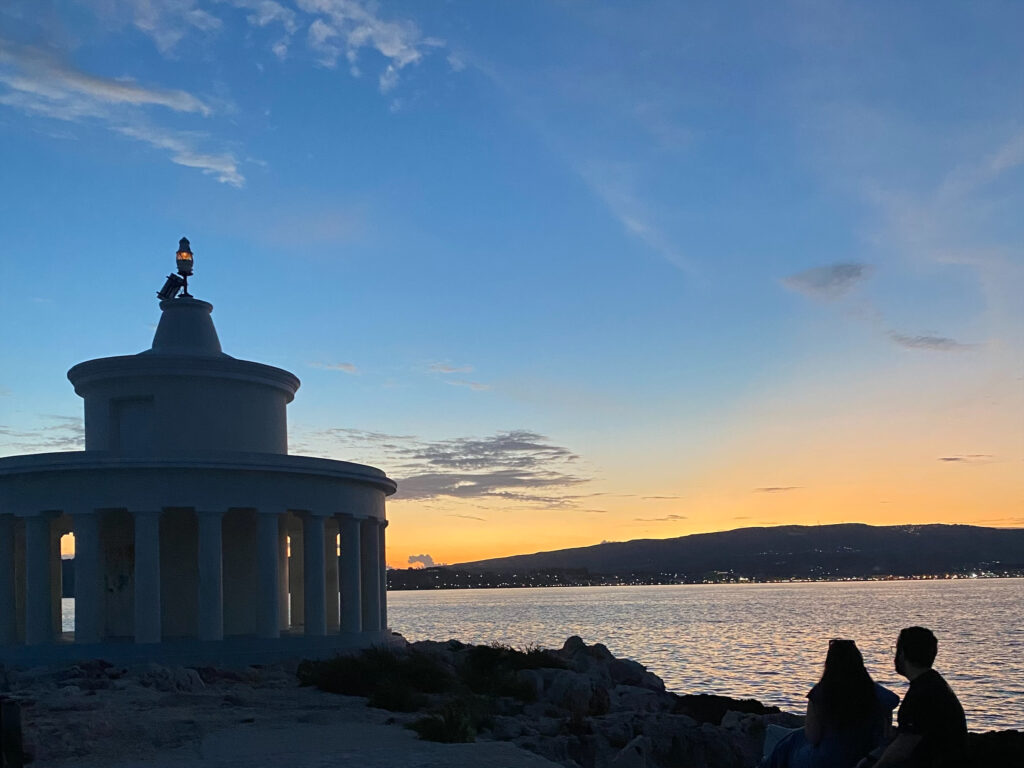
This week also saw us lose everyone’s favourite member of the core team, Tango. After spending three months at the beautiful Baha Ammes, she is now headed back on a European tour through mainland Greece, Italy, Germany and France, to her forever home in the UK. Although our furry friend will be greatly missed by the Core Team and Volunteers alike, we are glad she has found a loving home and will be waiting for news of her safe arrival.
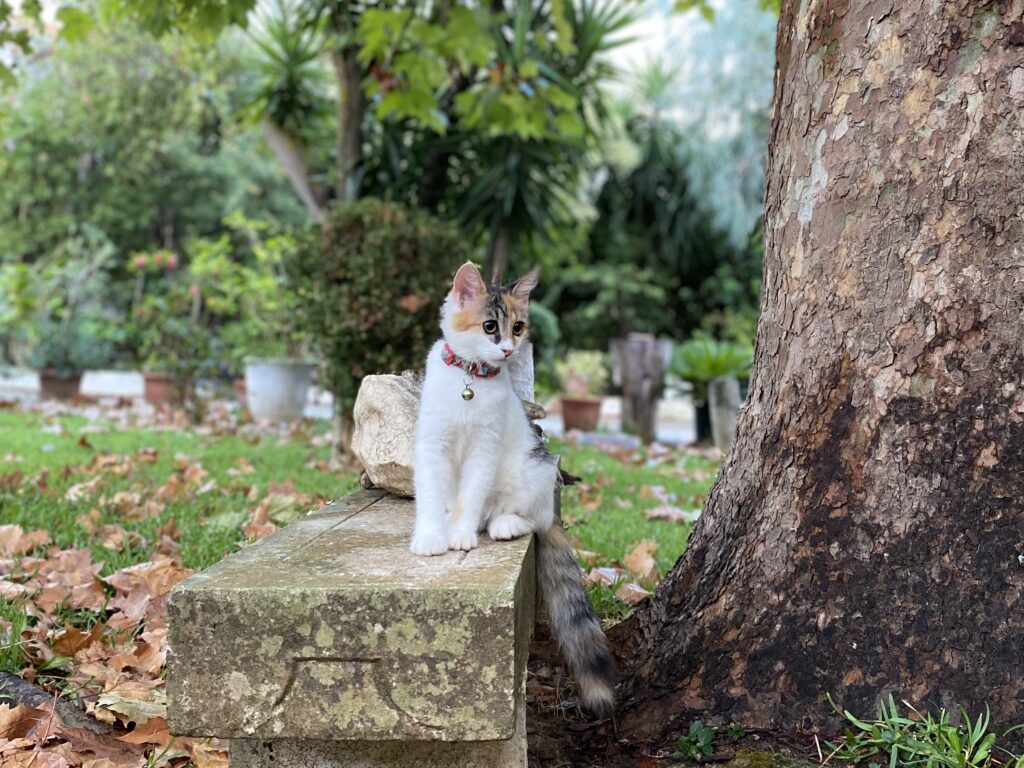
Lourdas Field Station
The unsettled, stormy weather has continued over the last two weeks bringing with it the risk of inundations for the remaining protected nests. One late afternoon before a large storm hit the area the team headed down to the beach to check on the remaining nests and any hatchlings that could make it to sea. During that afternoon the team managed to help over 306 hatchlings to sea! The next morning after the storm the sea level was extremely high, and the remaining nests had been washed over by the waves. The team quickly carried out moisture checks and one nest was found to be inundated. So, an emergency relocation was carried out. This nest has now been inventoried and 76 eggs out of 80 eggs have hatched, so the team are pleased that their quick response enabled the nest to be successful.
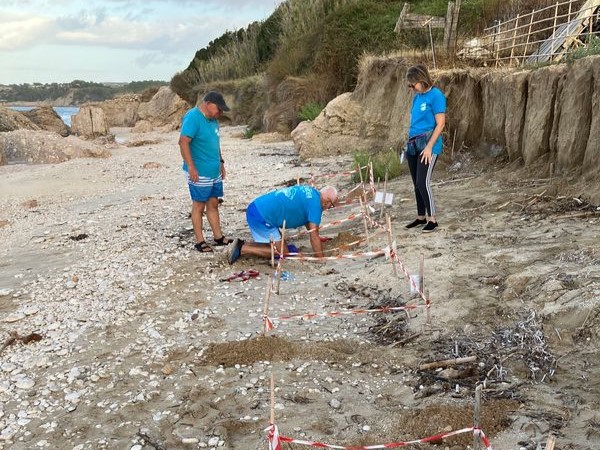
Sadly, the season is coming to an end in the Lourdas area, with 16 nests fully inventoried and over 368 hatchlings that have helped to sea in the last two weeks. There are no protected nests left on Kanali, just the 3 relocated nests on Megali Ammos. We hope these will hatch soon!
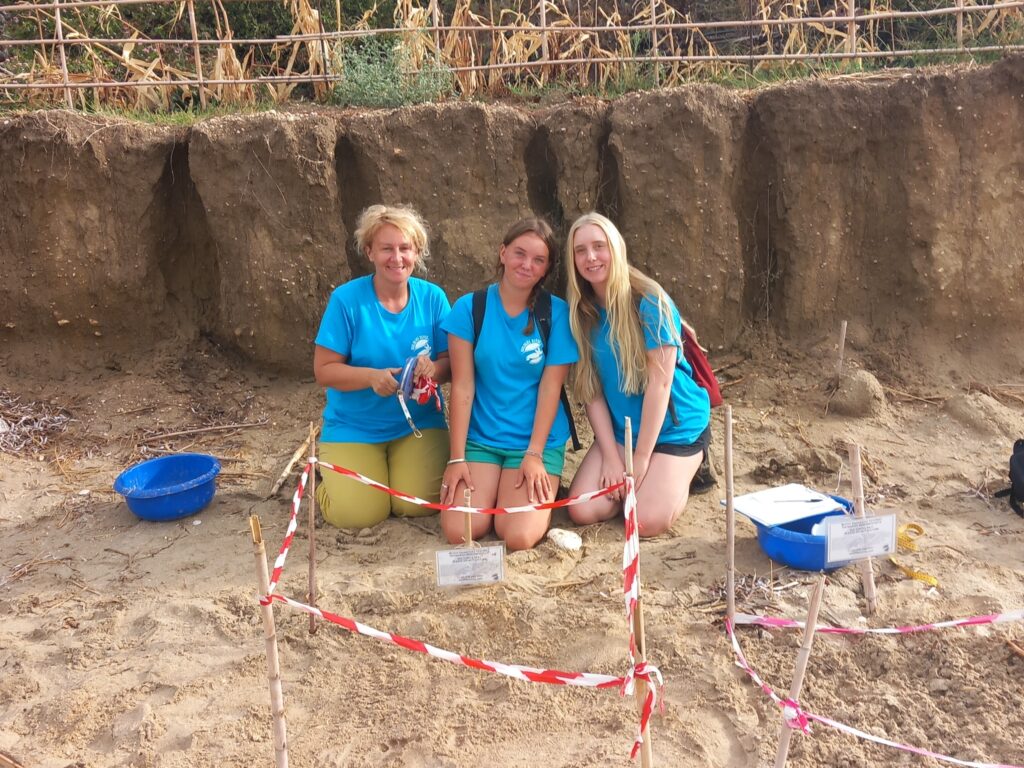
Once again David and Gill Green put up a display at the seafront bar in Klimatis, Lourdas Beach. The display included various skeleton parts from a Loggerhead Turtle and a young Green Turtle, which generated a great deal of interest. People were fascinated by the different jaws which indicated the diet that each of these turtles eat.
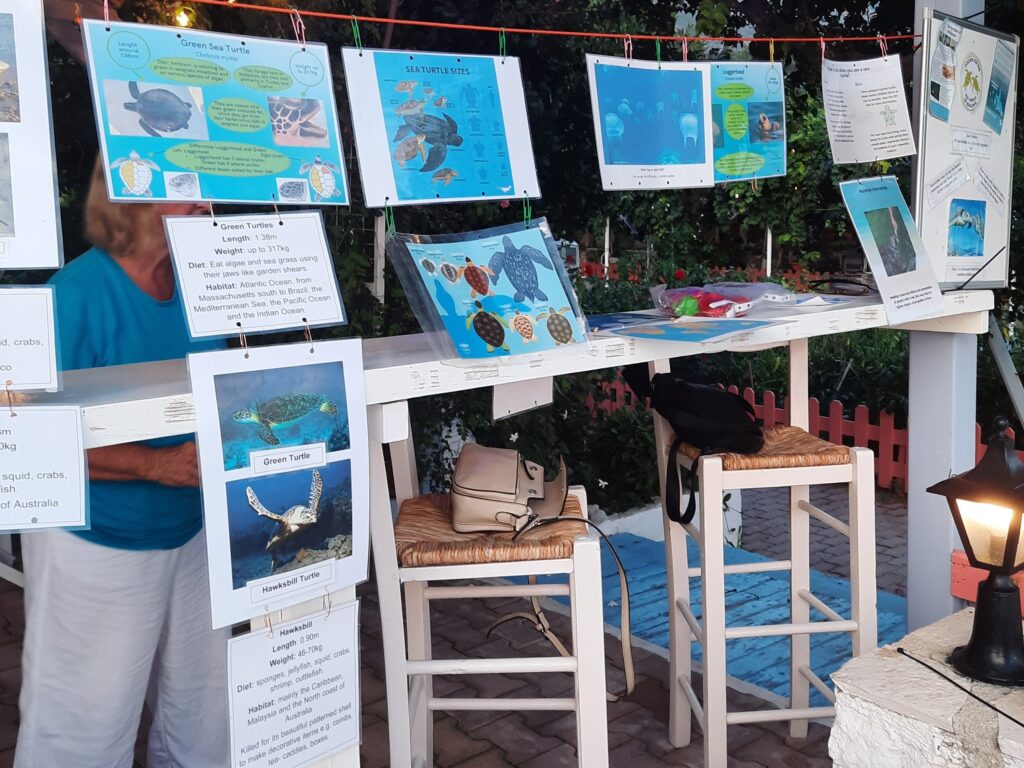
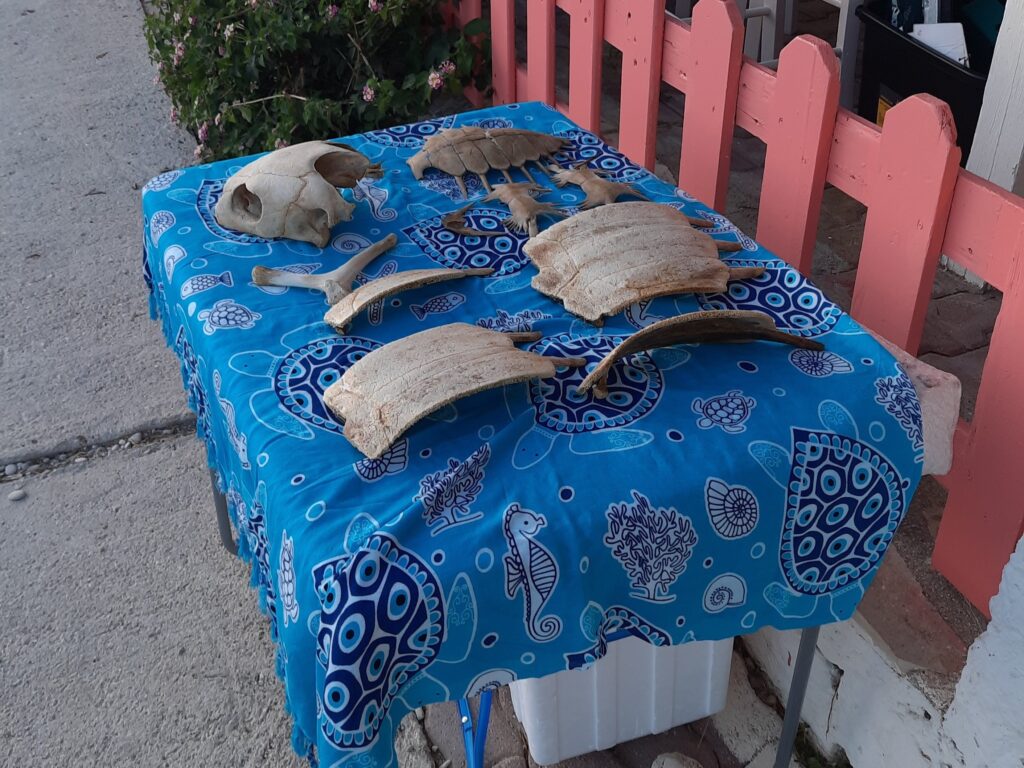
We met visitors from Australia, Canada, the US, the UK and Ireland as well as several European countries. In the week before the UK school summer holidays finished, we welcomed families with young children. These children were very interested in turtles and asked searching questions. We also spoke with local people who wanted to know more about the creatures living so close to them—another successful year.
Skala Field Station
This week in Skala, we have welcomed our final group this year. Our volunteers have tested their seagrass and sand dunes knowledge with our new activity night, Skala Bingo! Our other activity nights, such as henna night, quiz night and souvlaki night have all been very popular recently too.
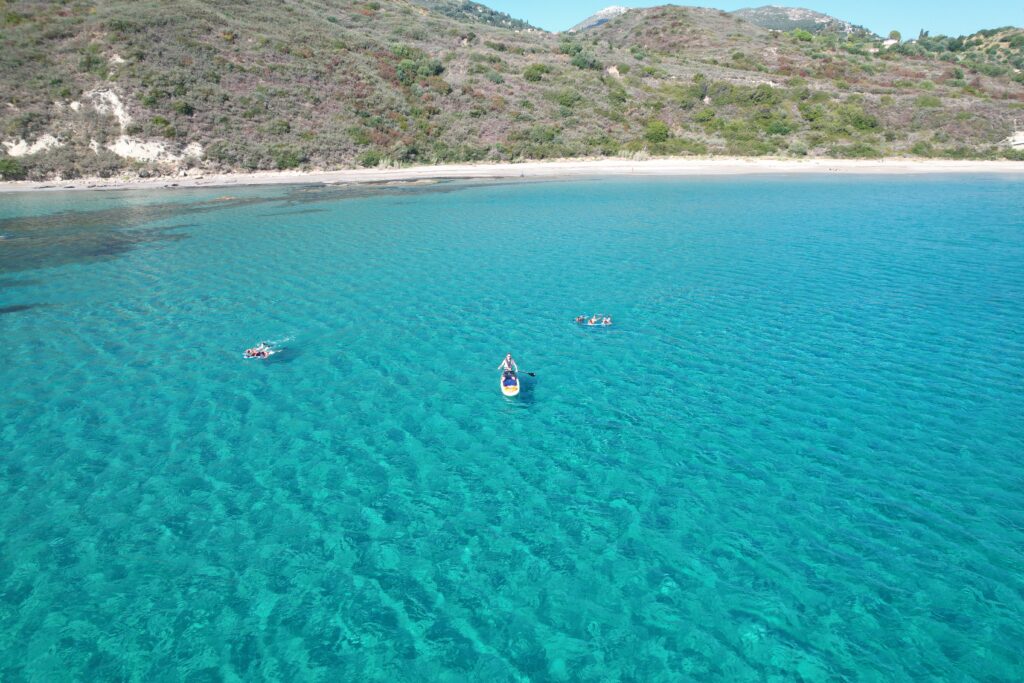
In our sand dunes surveys, we have had a sighting of a new plant, Juncus Maritumus, for the first time this season. It is also known as ‘sea rush’ and was used by the ancient Egyptians to make brushes for writing. At this stage of the season, we have covered a vast area with our quadrats, so it is rare for us to come across a new species so late in the season!
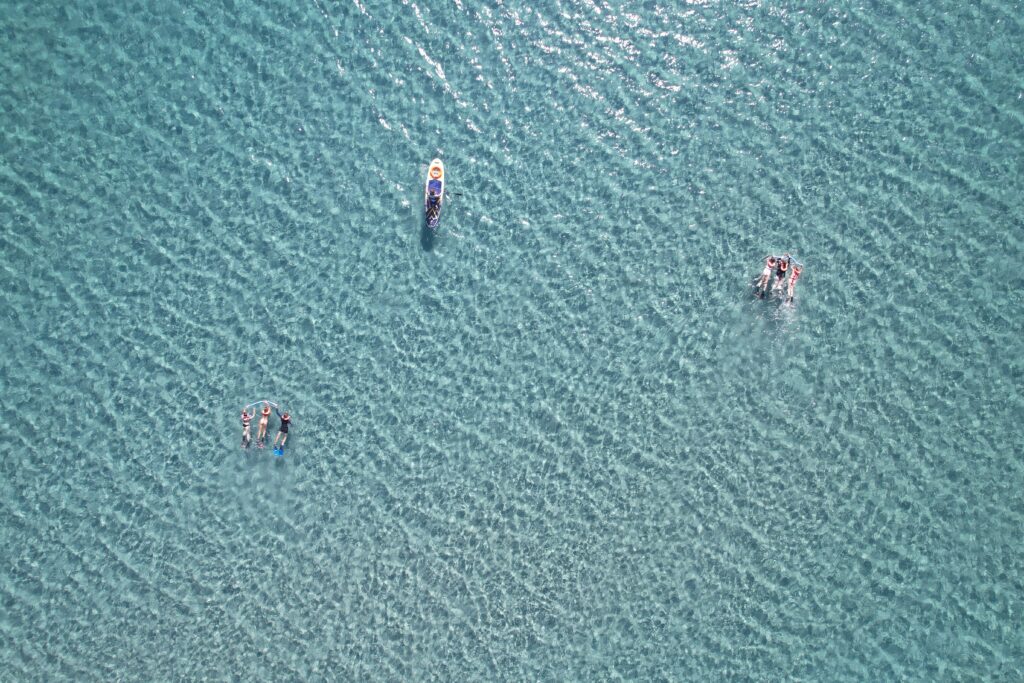
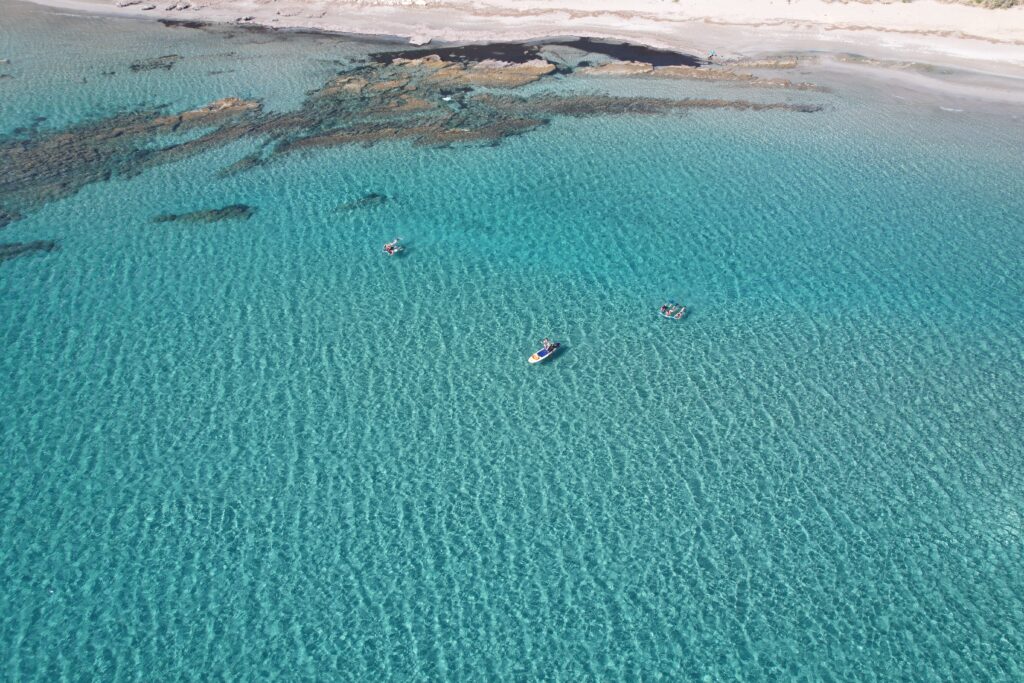
Light pollution shifts are also returning to Skala. Over the course of the season, we have been recording the light levels at a series of predetermined spots along the beaches in the local area. Light pollution greatly affects the success rate of hatchlings making it successfully from the nest to the sea, as they will head for the brightest spot- even if this is at the back of the beach. As there are known sea turtle nesting beaches in the Skala area, this data is valuable for evaluating their safety for hatching nests.
Lixouri Field Station
Hatching might be slowing in Lixouri, but the team have still had plenty to do over the last few weeks with stormy conditions providing a new set of challenges to face! The strong winds during storm events created high waves across all of the beaches. This threatened nests with inundation, so the team carried out moisture checks to ensure that egg chambers would be safe from flooding. On Megas Lakkos, moisture checks revealed that water was likely infiltrating several nests, so emergency inventories and relocations were carried out. Through these, 137 hatchlings were helped to sea and 50 eggs were moved to areas of the beach with higher elevation, to protect them from the waves.
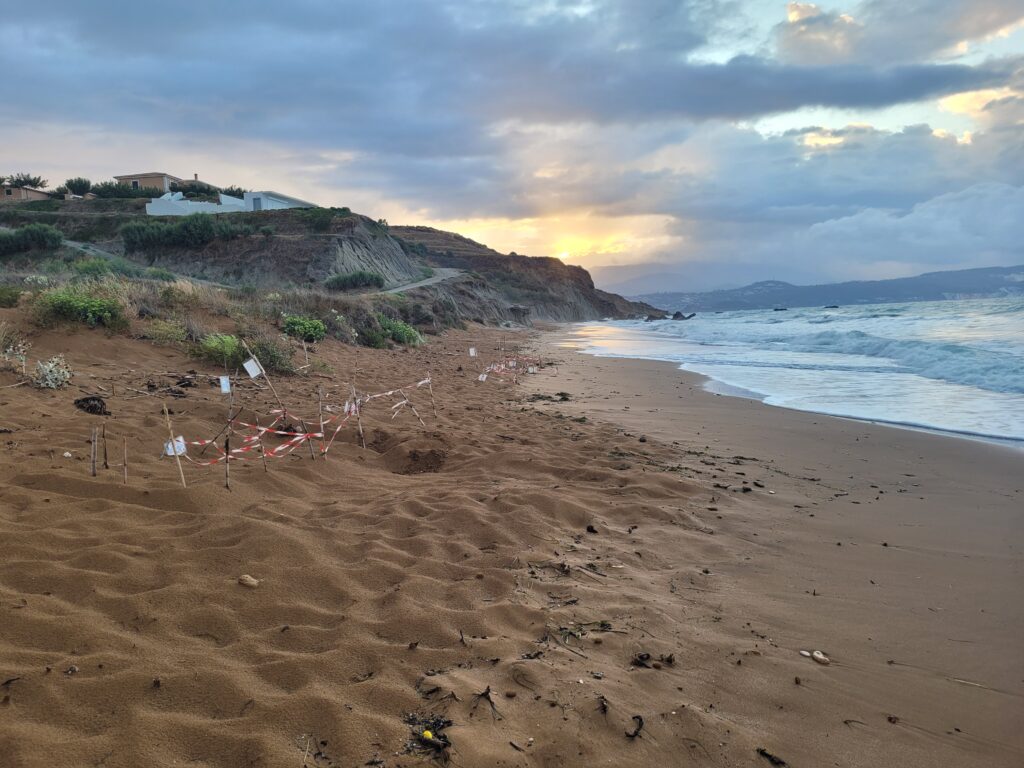
In addition, the past fortnight has seen 11 nests begin to hatch, with 13 hitting the 45th day of its incubation period. Twenty-seven inventories of nests have also been undertaken, helping 248 hatchlings to sea, with 750 hatched eggs. This has left only 3 nests remaining across the beaches in the area, from the season total of 174!
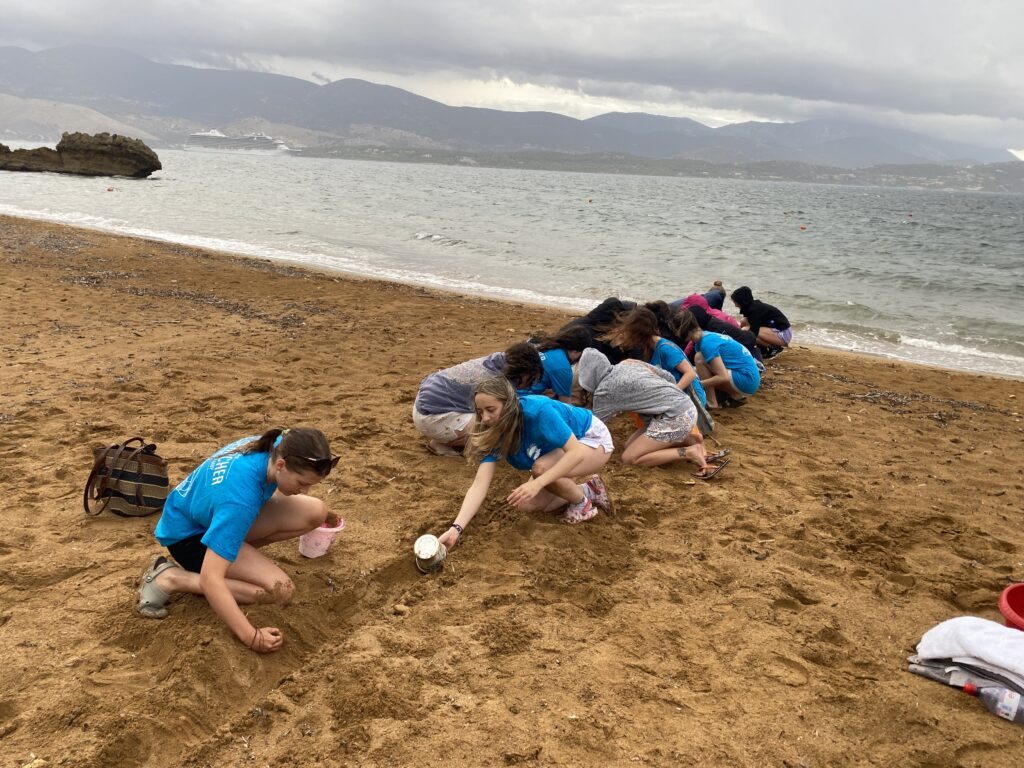
Unfortunately, two dead turtles have been found washed up in the Lixouri area during the past couple of weeks. One of the turtles found was a juvenile green. Upon inspection of its injuries, it was concluded that it was likely a victim of monk seal predation. The second turtle, a female loggerhead ‘Oregano’, had a large boat propeller strike to her carapace.
